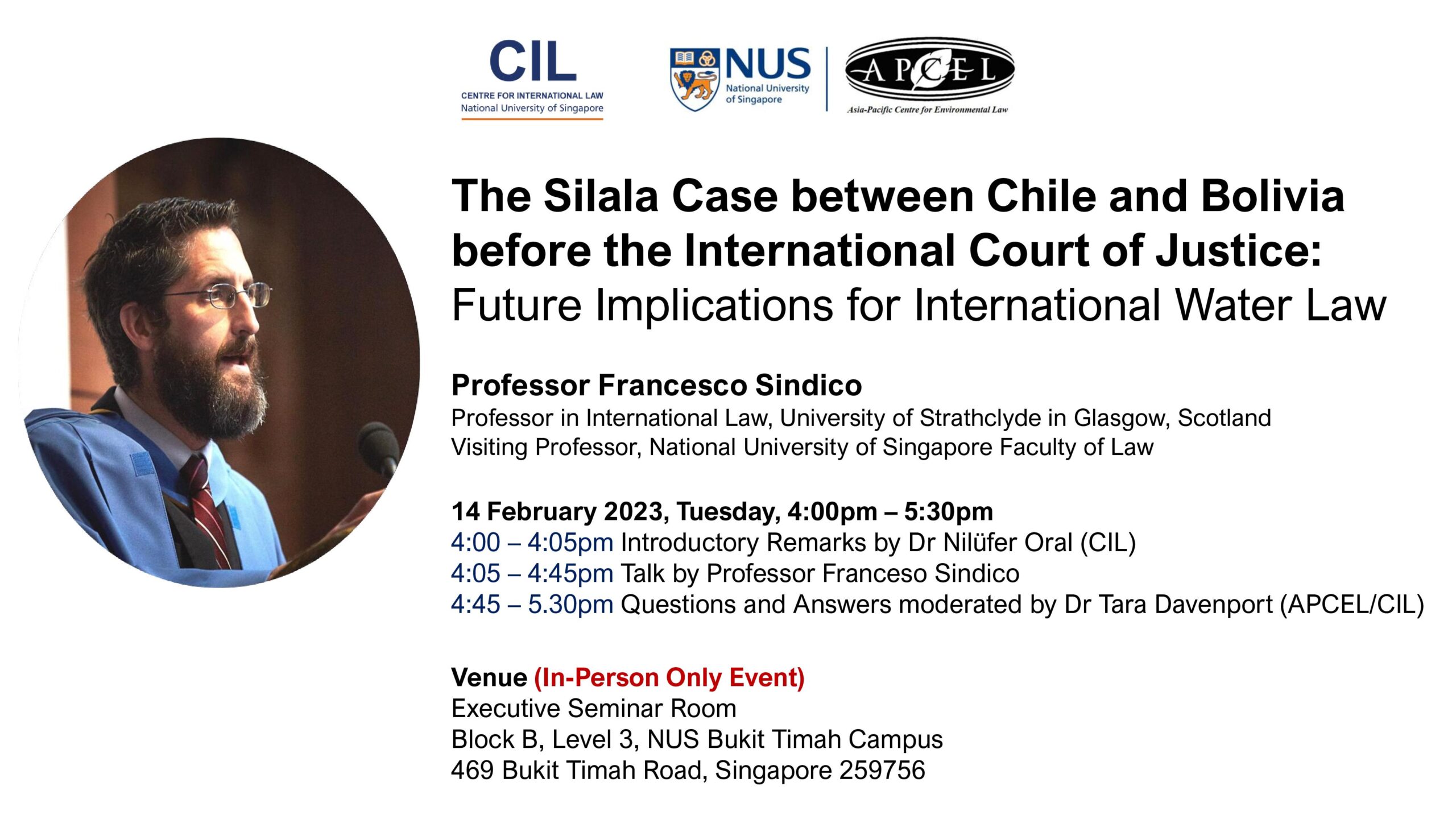Venue
Block B, Level 3
Executive Seminar Room
Start
End
Time

INTRODUCTION The Silala waters can be found at over 4000 metres in the Andean mountains of South America in one of the driest parts of the world. The waters themselves tell a fascinating but complex story of history, ecology, politics, and science. It is against this background that the dispute on the status and use of the waters of the Silala between Bolivia and Chile started in 2016 with Chile filing an application before the International Court of Justice (ICJ) seeking, amongst other things, a declaration that the Silala waters constituted an international watercourse. Six years later, and after several claims and counterclaims, the Court issued its decision on 1 December 2022. The Silala case is one of the few opportunities that the ICJ has had to engage with cases that relate to international water law. In this seminar jointly organized by the Asia-Pacific Centre for Environmental Law (APCEL) and the Centre for International Law (CIL) Prof Francesco Sindico, who acted as Counsel for the Plurinational State of Bolivia in the case, will present the facts, the role of science and the implications of the case for the development of international water law and for future cases on other environmental law matters, including a possible advisory opinion on climate change law.
ABOUT THE SPEAKER Francesco Sindico is a Professor in International Law at the University of Strathclyde in Glasgow, Scotland, and a Visiting Professor at the National University of Singapore Faculty of Law where he is teaching an intensive course on International Water Law. Francesco has researched and published extensively on a wide range of international water law matters, with a particular focus on transboundary aquifers and international law. Francesco researches and works also in international climate change law, with a specific focus on climate change litigation. He is the founder and director of the Climate Change Litigation Initiative (C2LI). Francesco has collaborated on a number of international projects in Southern Africa and Central America providing capacity building on international water law matters. Francesco has acted as Counsel for the Plurinational State of Bolivia in the dispute on the status and use of the waters of the Silala between Bolivia and Chile.

